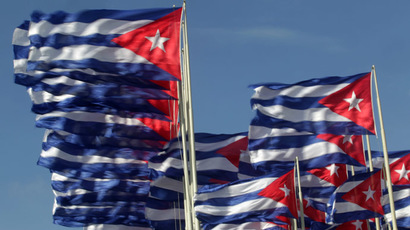Havana reveals more US attempts to influence Cubans

Cuba says last week’s revelations that the United States is looking to create unrest in the country through social networks could be just the tip of the iceberg.
The US government had admitted setting up a ‘Cuban Twitter’, which was created as a text messaging service to avoid the island’s strict internet laws. ZunZuneo, which is Cuban slang for the tweet of a hummingbird, aimed to build-up followers by giving them access to soft news stories, such as baseball and music.
However, once a critical mass was reached then political stories would be introduced looking to tarnish the image of Cuba’s government. The project, which was financed by the US Agency for International Aid and Development (USAID) hoped, would lead to demonstrations and eventually a ‘Cuban Spring’.
Havana has hit out at the United States, with the Union of Young Communists’ newspaper Juventud Rebelde saying it is “scarcely the tip of the iceberg of a gigantic subversive campaign against Cuba.”
ZunZuneo had around 40,000 followers at the height of its popularity, but disappeared in 2012 when funding dried up. However, another program, Martinoticas (Martinews) has been spamming cellphone users since 2011 the newspaper added.
Martinoticas is an online project created by the US government’s Office of Cuba Broadcasting (OCB) and was named after the Cuban independence hero Jose Marti.
“We don’t have anything to hide. We are just trying to create the free flow of information on the island,” OCB Director Carlos Garcia-Perez mentioned. “We’re not trying to create another revolution,” he added.
The Juventud Rebelde newspaper also uncovered a number of other US operations in Cuba. They referred to an initiative called Priamideo, which was set up in 2013, while they also mentioned Commotion, which was funded by USAID and aimed to give young Cubans access to films and online games with the aim of trying to overthrown Cuba’s communist government.














